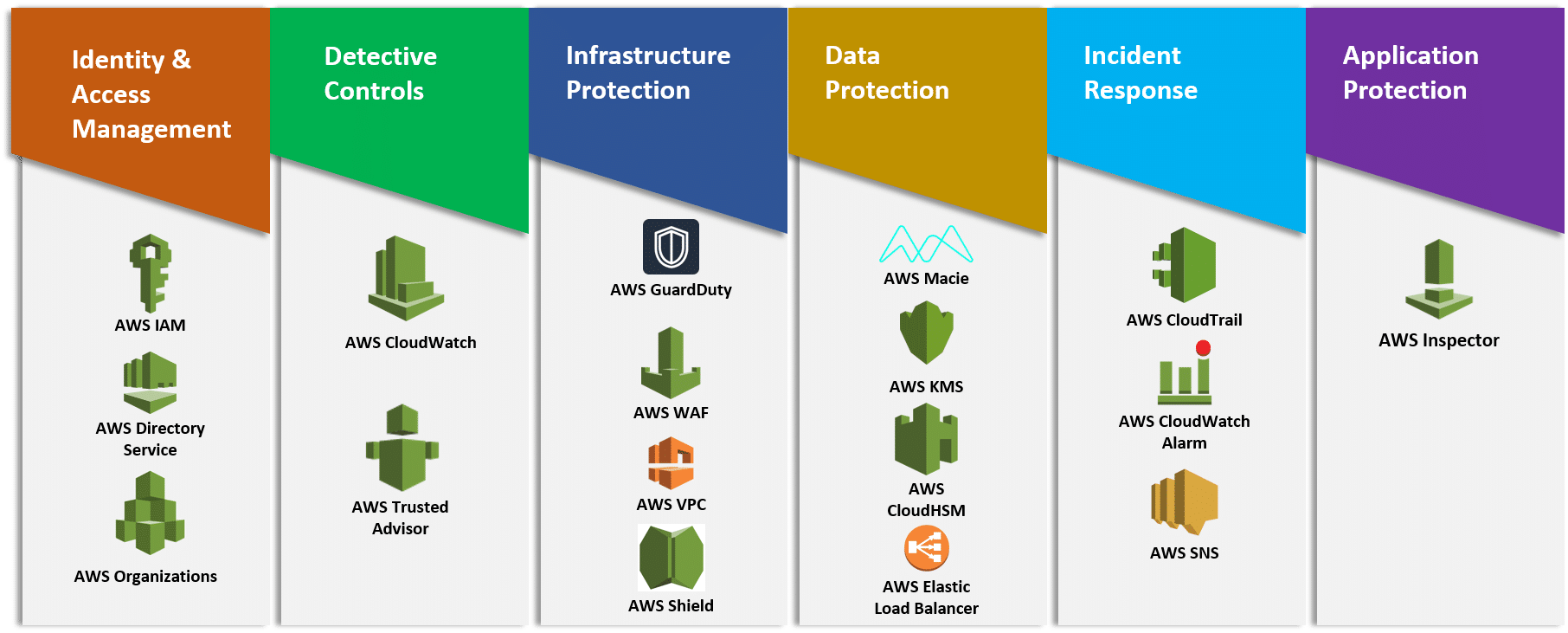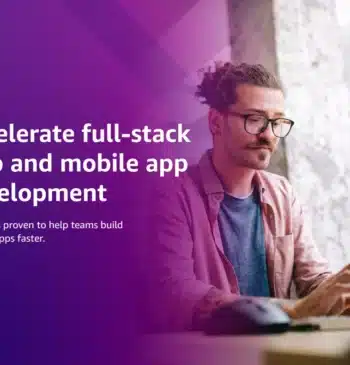16 Dec
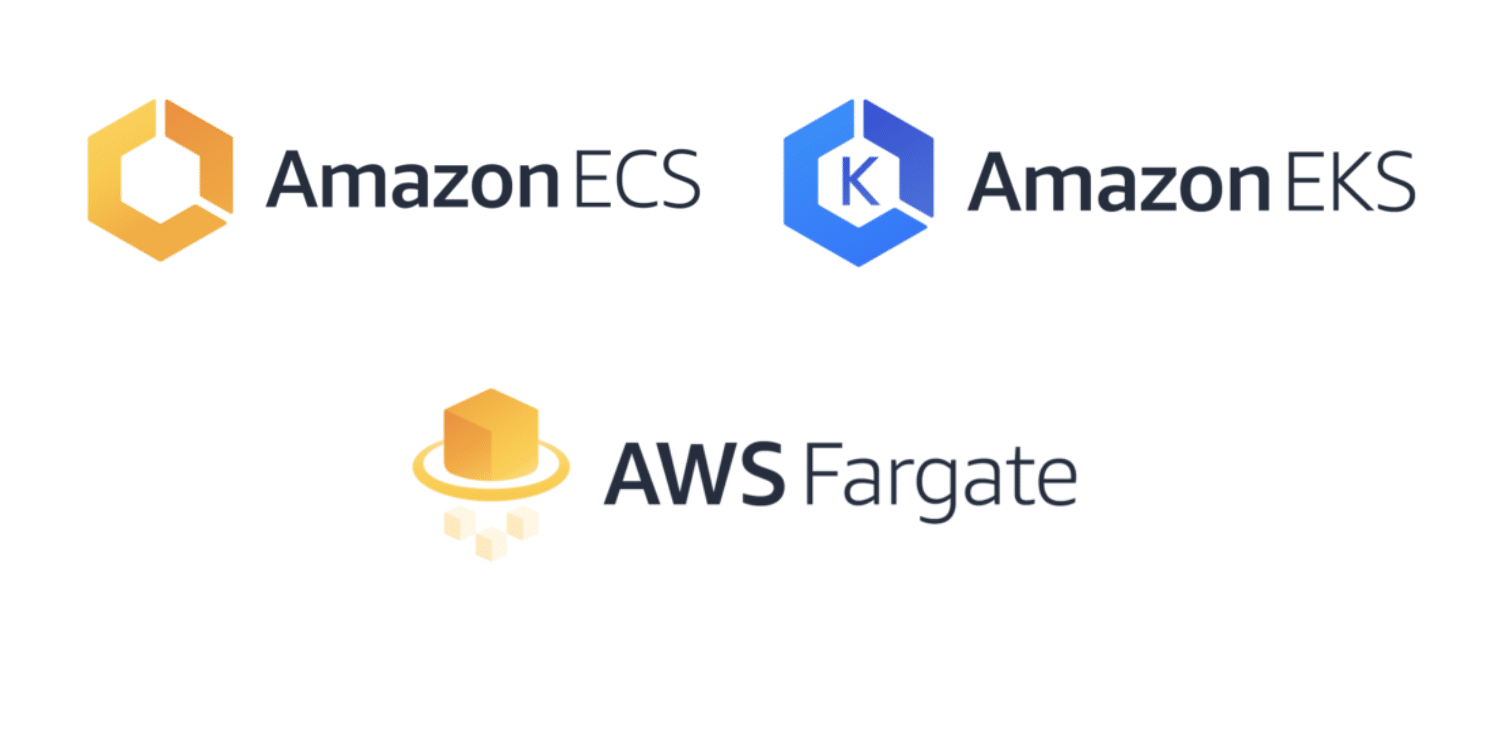
Background:
Docker has introduced a revolutionary in the way applications are built, shipped, and deployed. In order to manage your Docker containers, you do need an orchestration tool. Container orchestration is needed when you’re running an application on a large scale to handle issues such as availability, security, scalability, fault-tolerance, flexibility, AWS Fargate for Kubernetes is a popular way to achieve the containers architicture.
Containers have become very popular because they allow customers to package an application and run it anywhere, improve resource utilization, and make it easier to scale quickly. many cloud providers are focusing on Kubernetes, however, AWS built their Containerized Service (ECS) orchestration which gained a lot of interest and, because it is built on AWS APIs, it integrates seamlessly with other AWS services. and currently, there are so many clusters managed by Amazon ECS.
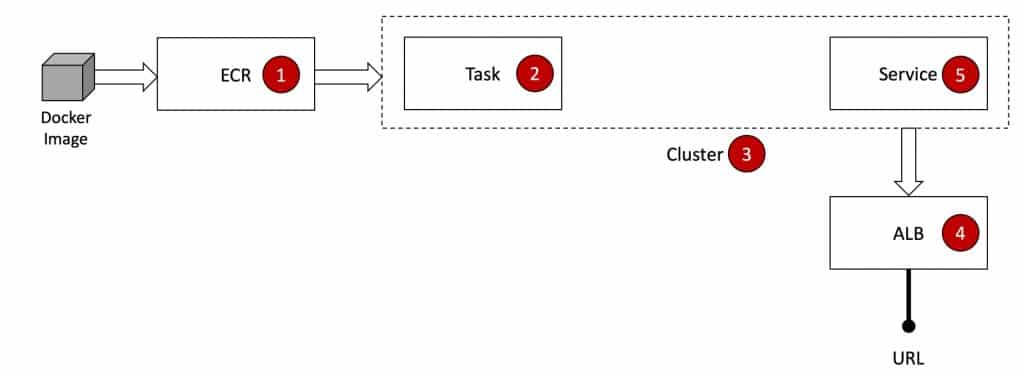
What is Kubernetes?
Kubernetes is an open-source container orchestration framework. It was originally developed by Google, based on years of experience running the world’s biggest containerized systems. Kubernetes is very widely adopted and is today the de-facto standard for container orchestration.
Kubernetes is highly configurable and not opinionated by default, so it can be installed and configured to meet your specific needs.

What is AWS ECS?
AWS ECS stands for AWS Elastic Container Service. It is a highly scalable container orchestration service. It is built for AWS. This means that to use ECS you have to be within the AWS infrastructure. It’s built for Docker and allows us to run multiple containers of a single Docker image. The major pieces of an ECS are; Cluster, Task Definition, Task, Containers, Services. ECS can be deployed in either EC2 and Fargate modes in AWS Fargate for Kubernetes.
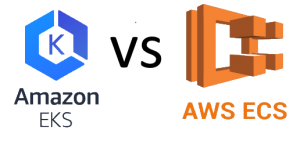
ECS vs EKS
ECS and EKS are both container orchestration platforms vs AWS Fargate for Kubernetes. with elastic container service, it has the model with two main components: scheduler and underlying hosts. The main action of the scheduler is to decide which host the container will run on, how many replicas of the containers will be instantiated and how resources will be allocated to these containers on the underlying hosts they reside on.
| Amazon ECS | Amazon EKS | |
| Pricing | ECS itself is free – you pay only for Amazon EC2 resources you use. |
The EKS management layer incurs an additional cost of $144 per month per cluster. |
| Ease of deployment | Seamless deployment of tasks directly from the AWS management console. | Configure and deploy clusters via Kops or CloudFormation templates, which is more complex. |
| Security | Supports IAM roles, allows you to assign network cards directly to a pod. | It does not support IAM roles; access management must be configured within Kubernetes. |
| Compatibility | Amazon-specific. | Supports multi-cloud and hybrid-cloud deployments. |
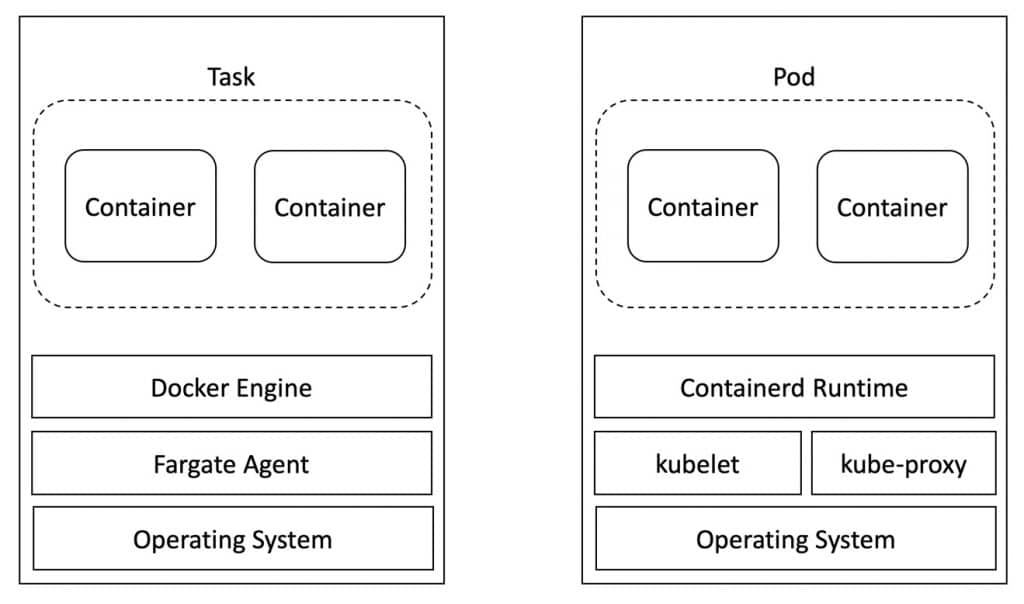
Advantages of Amazon ECS in AWS Fargate for Kubernetes include:
- Serverless infrastructure – ECS lets you operate containers without having to directly manage virtual machines. The ECS service deploys VMs and manages containers on them without user intervention.
- Built-in security – unlike Kubernetes, Amazon ECS is secured by default, with all containers launched in a Virtual Private Cloud with isolated, secure networking.
- AWS integration – ECS is smoothly integrated with other Amazon services which are useful for containerized workloads, such as Elastic Load Balancing, CloudWatch, CloudFormation, and IAM.
- Spot instances – because containers are immutable, you can run many workloads using Amazon spot instances (which can be shut down with no advance notice) and save 90% on on-demand instance costs.
Advantages of Kubernetes include:
- Vendor agnostic – unlike Amazon ECS, Kubernetes is a vendor-agnostic platform that can run on any cloud provider or on-premises. Kubernetes workloads are portable and support hybrid- and multi-cloud strategies.
- Open source – Kubernetes is supported by a huge open source community, with a large ecosystem of tools and plugins, strong support and an ambitious development roadmap.
- Battle-tested – Kubernetes has the most extensive production experience of any container orchestration platform. It is proven to be robust and reliable at virtually any scale.
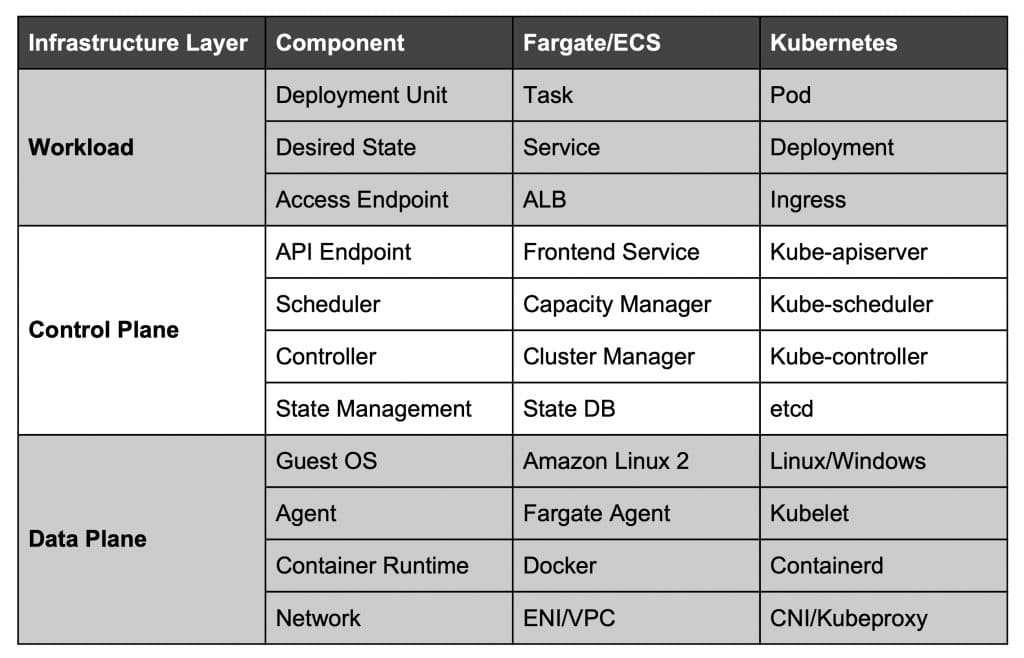
Which to Choose?
Choosing between Amazon ECS, EKS, and self-managed Kubernetes depends on the size and nature of your project:
- Small deployments – prefer ECS due to its seamless deployment and configuration.
- Large or hybrid deployments – prefer EKS due to stronger customization and improved portability between clouds and on-premise systems.
- Legacy workloads – if you are transitioning to a containerized environment, plain Kubernetes may be the best choice, as it will allow you to build a dev/test/production environment on-premises, and then move it to the cloud if and when required.
AWS Fargate for Kubernetes
AWS announced that customers can now run AWS Fargate for Amazon Elastic Kubernetes Service (EKS), making it easier for customers to run Kubernetes applications on AWS. AWS Fargate, which provides serverless computing for containers.
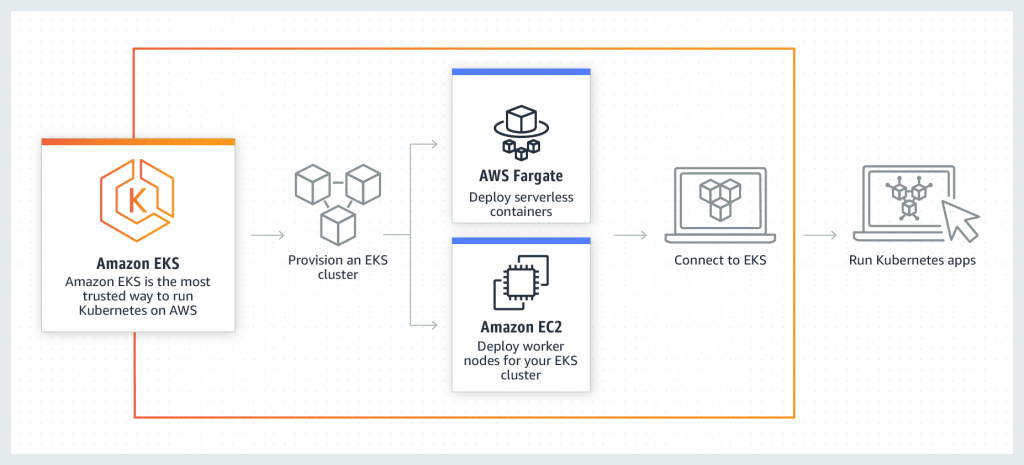
Conclusion
AWS Fargate for Kubernetes will allow customers to remove the burden of operating worker nodes, and still also being able to use the Kubernetes API. With Fargate, you only pay for the amount of vCPU and memory and resources that the pod needs to run, which means you won’t have to worry about the setup because Fargate should run the same number of resources needed to run that pod needed at any time.
Kubernetes comes with complexities that are not very visible until you go deep inside of it. On the other hand, ECS Fargate is what I will recommend when it is a start-up with little or no dedicated DevOps expert with Kubernetes experience.
Amazon EKS and AWS Fargate provide the serverless benefits of Fargate, the best practices of Amazon EKS, and the extensibility of Kubernetes out of the box.

